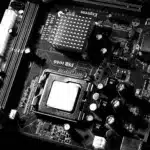
Blockchain
The blockchain is a time-stamped series of unchangeable record of data which is managed by a cluster of computers that don’t belong to any single entity. Each of these blocks of data is secured and bound to one another by cryptographic principles, in this case, blockchain. Since it does not have a central authority, blockchain can be said to be the very definition of a democratized system. It a shared immutable system hence the information contained therein is available for all to see.
It offers a simple but convenient way of passing information from A to B safely. A party to the transaction initiates the process by creating a block. The block is then verified by thousands or even millions of computers which are distributed across the net. The block is then added to a chain that is then stored across the internet. To falsify this single record, one would need to falsify the entire chain in millions of instances which is virtually impossible.
Uses of blockchain
Owing to its features, it has gained a lot of popularity. It has become absorbed in many aspects of our day to lives. Discussed below are some of the existing uses of the blockchain.
Cross-border Money transfer
IBM has come up with a banking solution that enables financial institutions to process cross-border payments using blockchain. The motivation behind the idea is to leverage the distributed ledger technology so as to reduce the settlement time while lowering the cost of processing global payments. This solution will also offer transparency for all parties that are involved in the transactions.
This solution is anchored on the open source Hyperledger Fabric platform. IBM has partnered with open source blockchain network stellar.org in order to create “Lumens” that are traded. They have also partnered with KlickEx Group to prove out the solution.
Authenticity verification of pieces of art

Verisat is using blockchain to verify the authenticity of pieces. It has partnered with ArtSystems to offers blockchain-based certificates of authenticity which are embedded in the art inventory management systems. Verisat has also created a system a system for the auction market called P8Pass that stores the detailed history of the artwork on the blockchain hence creating an immutable record of artwork.
Fraud prevention in eGaming
The Isle of Man has an active and thriving egaming sector. It believes that this sector can be tangibly boosted by blockchain. In 2017, it gave Qanta a license to operate a block-chain enabled lottery that uses the Ethereum platform. Donegan, the head of e-business operations believes that blockchains immutability and censorship resistance resulting from blockchain will help to keep crime out crime and protect the consumer.
Stamp out pharma fraud
DHL, a global logistics company has partnered with Accenture to create a life science and healthcare proof of concept based on the blockchain. Interpol claims that 30% of pharmaceutical products found in emerging markets are counterfeit. The serialization prototype was therefore designed to tackle the black-market.
Implications of blockchain
The blockchain is anchored on three properties;
- Decentralization
- Transparency
- Immutability
As such, its infiltration into various of the economy will lead to various implications. Implications of blockchain in various sectors of the economy have been discussed below.
Financial sector
It offers real-time payment in a very cost-effective manner. The blockchain is not centralized hence do not require a central authority for clearing transactions. Unlike the centralized system, blockchain is not prone to hacking hence cutting off fraud and counterfeiting. The filtration of blockchain into money transfer in surely going to give banks a run for their money.
Insurance
Insurance involves the signing of the contract, paying premiums, filing a claim, investigation and final settlement. Blockchain as the capability of changing theses steps. Legal contracts can be replaced with smart contracts by embedding the distributed ledger mechanism. It also offers a chance for settlements to be done digitally hence creating transparency, efficiency, and responsive claim management.
Credit sector

Approximately 45 million American cannot access loans from registered financial companies hence have been forced to access loans from black markets. It could change all this very soon. It will offer a registry with a comprehensive credit rating giving borrowers an opportunity to buy loans despite the credit rating.
Summary
The blockchain is certainly disruptive and is set to expand beyond the discussed sectors. Its adoption is in the various will render many traditional systems inept. It will also help improve many of the sectors. Nonetheless, the net effect will be a better world, where transactions are real time and are recorded decentralized ledges that are immutable.






















1 Comment